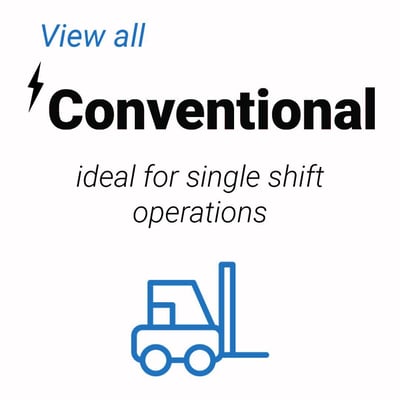
Charging Habits That Affect Forklift Batteries Life
When it comes to maintaining efficient operations in warehouses and construction sites, one often overlooked aspect is the charging habits of forklift batteries. Understanding how these habits can significantly impact battery life is crucial for any business that relies on material handling equipment. In this article, we'll explore the various charging practices that can either extend or shorten the lifespan of your forklift batteries.
Charging Habits That Affect Forklift Batteries Life
Forklift batteries are typically lead-acid or lithium-ion types, and each type has its own unique charging requirements. However, regardless of the type, certain charging habits can profoundly affect their longevity and performance.
Understanding Battery Chemistry
Before diving into charging practices, it's essential to understand how forklift batteries function. Lead-acid batteries operate through a chemical reaction between lead dioxide and sponge lead in an electrolyte solution, while lithium-ion batteries use a different mechanism involving lithium salts. This fundamental difference necessitates distinct charging protocols.
Depth of Discharge (DoD)
The depth to which a battery is discharged before recharging plays a significant role in its longevity. For example, lead-acid batteries should ideally not be discharged below 50% of their capacity for optimal life expectancy. Frequent deep discharges can result in sulfation—a condition where lead sulfate crystals form on the battery plates, ultimately reducing its efficiency.
Charging Frequency
Overcharging or undercharging can lead to premature battery failure. Regularly charging after every use may seem beneficial but can cause overheating and damage over time. Conversely, infrequent charging can lead to deep discharges that harm the battery's health.
Charge Duration
Each battery type has recommended charge durations based on its specifications. While some modern chargers have automatic cutoff systems to prevent overcharging, older models might not feature these technologies, leading operators to manually monitor charge times.
Best Practices for Charging Forklift Batteries
To maximize the lifespan of forklift batteries, here are some best practices you should adopt:
Use Smart Chargers
Investing in smart chargers can make a world of difference. These devices automatically adjust charge rates based on the battery's state of charge, reducing the risk of overcharging and ensuring optimal charging cycles.
Regular Maintenance Checks
Perform routine maintenance checks on both your forklifts and their batteries. Cleaning terminals and checking electrolyte levels (for lead-acid types) can prevent issues that may arise from neglecting minor details.
Temperature Control
Maintaining a consistent temperature during charging is vital for both lead-acid and lithium-ion batteries. Extreme temperatures—both hot and cold—can hinder performance and even damage the battery cells over time.
Charging Habits That Can Shorten Battery Life
While there are many ways to promote longevity in forklift batteries, several common practices can inadvertently shorten their lifespan:
Ignoring Charge Cycles
Employees may sometimes ignore established charge cycles in favor of convenience or haste. Skipping necessary recharge times leads to uneven wear across cells within the battery pack.
Partial Charging
Frequently performing partial charges instead of fully cycling the battery can create memory effects—especially with older nickel-cadmium technology—leading to reduced usable capacity over time.
Using Incompatible Chargers
Using chargers that are not designed specifically for your type of forklift battery can result in inadequate voltage regulation and potentially harmful conditions for your equipment.
Frequent Fast Charges
While fast-charging options can be tempting due to their speed, they often generate excess heat and put additional stress on internal components—significantly impacting overall battery health.
High Discharge Rates
Repeatedly operating forklifts at high discharge rates without giving adequate rest periods will strain the battery's capabilities and diminish its effectiveness over time.
FAQs About Forklift Battery Charging Habits
1. What is the ideal depth of discharge (DoD) for forklift batteries?
For lead-acid forklift batteries, it's recommended not to discharge below 50% capacity for optimal lifespan; lithium-ion types generally allow deeper discharges 24 volt flat plate forklift batteries but still benefit from regular recharging before reaching critical levels.
2. How often should I charge my forklift batteries?
It's best practice to charge after every use; however, avoid frequent partial charges unless necessary as they may contribute to reduced capacity over time.
3. Can overcharging damage my forklift battery?
Absolutely! Overcharging leads to excessive heat buildup which can cause permanent damage to internal components—resulting in shorter overall lifespan.
4. What role do temperature conditions play in charging?
Extreme temperatures affect chemical reactions within the cells; too hot or too cold environments during charging will impair efficiency and longevity.
5. Should I perform maintenance checks on my forklift batteries?
Yes! Regular maintenance—including cleaning terminals and checking electrolyte levels—is essential for prolonging battery life and ensuring safe operation.
6. Are there specific chargers I should use with my forklift?
Always use chargers specifically designed for your type of forklift battery; mismatched chargers may fail to provide adequate voltage regulation, leading to potential damage over time.
Conclusion
In summary, understanding how various charging habits affect forklift batteries' life is imperative for any business relying on material handling equipment. By 36 volt flat plate forklift batteries being mindful about depth of discharge, frequency of charges, duration of each cycle, temperature control, and regular maintenance checks—you'll set your fleet up for success!
Implementing best practices while avoiding common pitfalls will ensure your forklift batteries operate efficiently throughout their service lives while saving costs associated with premature replacements or repairs down the line.